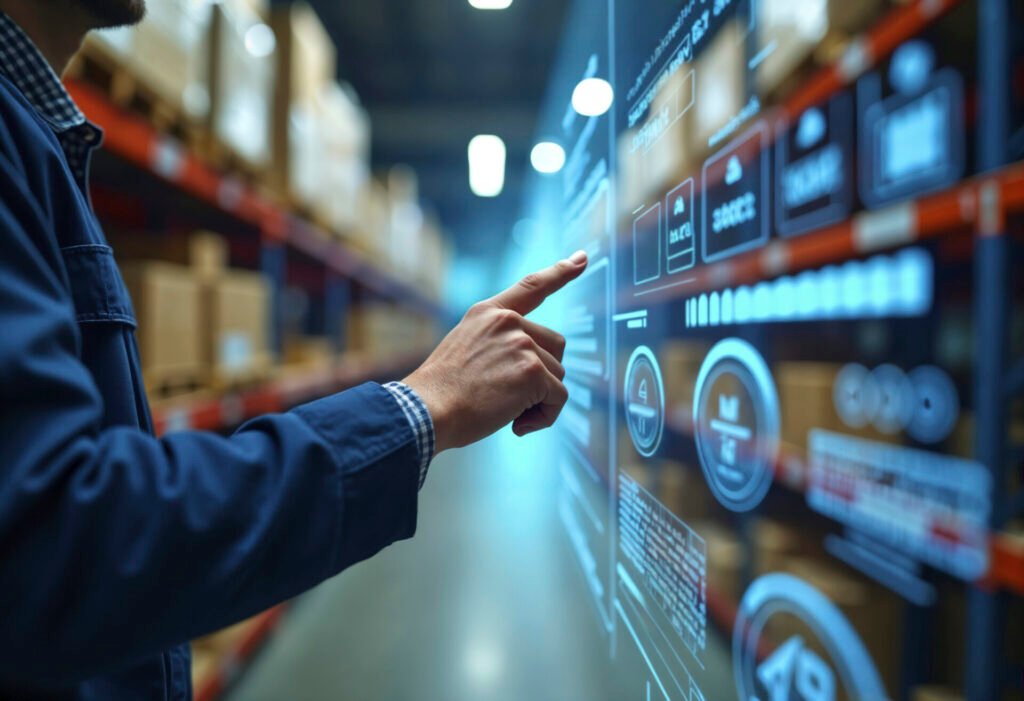
In the fast-paced logistics environment, speed, precision, and flexibility are essential. With global markets growing more integrated and customers becoming more demanding, the conventional methods of handling supply chains are not enough. Step in Artificial Intelligence (AI) and Automation — the disruptors are redesigning the way supply chains work, making them intelligent, agile, and more competitive.
The Move to Smart Logistics
Supply chains used to rely on manual processes, broken-down data, and human judgment. It was good enough for generations, but the explosive growth of e-commerce, globalization, and unexpected shocks such as the COVID-19 pandemic highlighted the necessity for a more responsive, data-driven paradigm.
AI and automation are delivering that advantage by allowing real-time visibility, predictive analytics, and autonomous operation. Organizations that adopt these technologies aren’t simply enhancing efficiency — they’re redefining the very nature of logistics.
AI in Action: Smarter Decision-Making
AI assists logistics firms in managing huge volumes of data to make more informed decisions more quickly. Route optimization to demand forecasting, AI algorithms can sift through past and real-time data to provide insights that may elude humans.
For example, machine learning algorithms can forecast delays due to weather, traffic, or supplier behavior, enabling logistics managers to take preventive action and reroute shipments or change delivery schedules. Likewise, AI can predict stock requirements with phenomenal precision, eliminating wastage and enhancing stock levels.
Automation: Simplifying Operations
While AI enables wise decision-making, automation is aimed at performing jobs without any interference from humans. In warehouses, robotic solutions pick, pack, and sort at an incredible pace and accuracy. Automated guided vehicles (AGVs) and drones are increasingly being utilized in certain buildings to move merchandise inside or even ship merchandise right to customers.
In addition to physical automation, software automation is also contributing greatly. Robotic Process Automation (RPA) technology is being utilized to execute repetitive administrative tasks like data entry, billing, and order processing, leaving staff to concentrate on strategic initiatives.

Increased Visibility & Transparency
AI and automation play a large role in enabling end-to-end visibility throughout the supply chain. Real-time tracking, predictive alerts, and dashboard analytics provide stakeholders with complete visibility into their operations. This visibility enables quicker response times, better customer service, and better relationships with suppliers and partners.
In addition, blockchain with AI is being used to establish tamper-proof shipment and transaction histories, a further guarantee of security and trust in the supply chain network.
Overcoming Challenges
While there are advantages, there are challenges to implementing AI and automation. The initial outlay in technology and infrastructure is considerable. And then there is the requirement for expert talent to operate these systems and integrate them appropriately with current operations.
But now with the increasing presence of AI-based logistics platforms and cloud-based automation software, even small and medium-scale logistics firms can start incorporating these technologies gradually and enjoy the fruits.
The Future Is Autonomous & Intelligent
In the future, we will see even more sophisticated uses of AI and automation in logistics. Autonomous delivery trucks, self-driving cargo vessels, and AI-driven supply chain control towers are no longer the stuff of science fiction but are currently in development or pilot phases.
Those companies that move now and adopt these technologies will be best placed to deliver on customer expectations, lower the cost of operations, and stay ahead of the competition in an industry that is rapidly changing.
Conclusion
AI and automation are not only changing supply chains but reinventing them. For logistics providers, this change provides a one-time chance to drive greater efficiency, fewer mistakes, and better customer experiences. By adopting these technologies, businesses can future-proof their operations and drive innovation in a smarter, more interconnected world.





Comments (2)
situs omega89 May,22 2025
This was beautiful Admin. Thank you for your reflections.
omega89 apk May,22 2025
I truly appreciate your technique of writing a blog. I added it to my bookmark site list and will